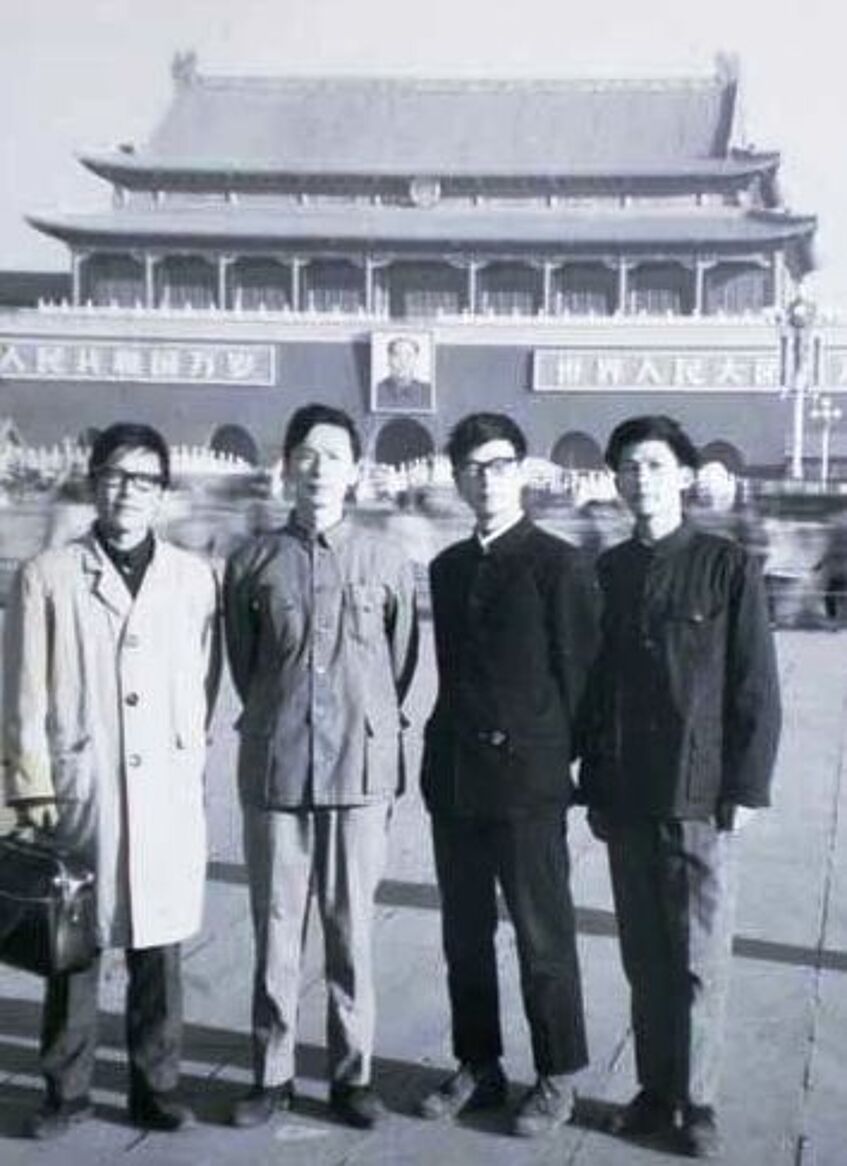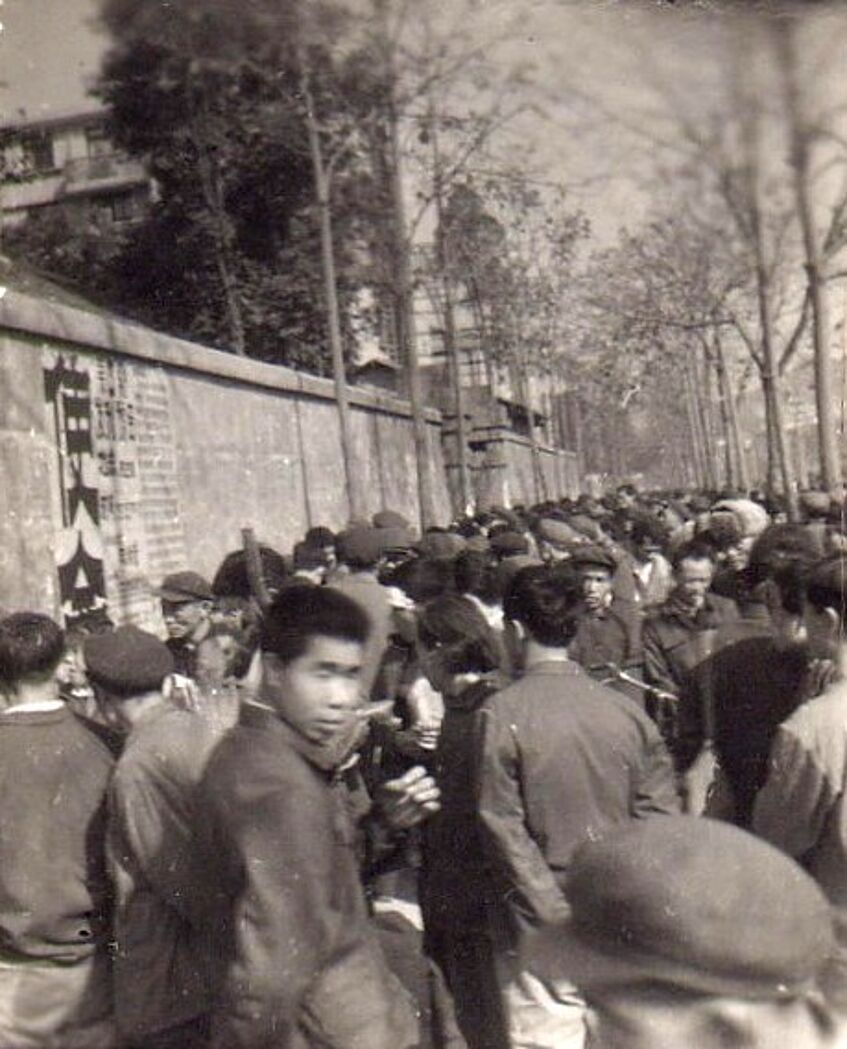The Guizhou "Enlightenment Society"
Artists from a Remote Province

Members of the "Enlightenment Society" in Beijing (late 1978, second from left: Huang Xiang)
Artists from a Remote Province
During the last months of 1978, young writers and artists from Guiyang (Guizhou Province, south-west China) who were concerned about developments in their country, met to found an "Enlightenment Society" (Qimeng She 启蒙社) as they called it, referring to the ideas in 17th and 18th century Europe of a concept of progress based on reason, ideas that were later taken up by Karl Marx and Friedrich Engels.
There were a few dozen people connected to this informal discussion group in Guiyang - partly former Red Guards, partly victims of political persecution before or during the Cultural Revolution.
In late 1978 some of them boarded a train to Beijing to follow up the news about planned reforms and impending political changes. On October 11 they published the first edition of the first independent journal, and they called it - no surprise - "Enlightenment". It mainly contained the text of an epic poem carrying the title "The Fire God Symphony" (火神交响诗).
Its author Huang Xiang (黄翔), born in 1941, was one of the main militants of the "Enlightenment Society". His father was a former Kuomintang General executed by the communists, and he himself had already been imprisoned several times for political reasons. On November 24, 1978 he posts his poems on a 60 meters long wall near Tiananmen Square. In an introduction Li Jiahua (李家华), another activist of the Society, demands the "end of thousands of years of patriarchal rule" and respect for citizens' rights granted by the constitution. Within sight of the just opened Mao Mausoleum, the group proclaims the founding of a "Beijing branch" of the "Enlightenment Society".
Huang Xiang is one of the first to publicly attack Mao ("30 percent good, 70 percent bad", as he says), and he demands a "re-evaluation" of the Cultural Revolution. In January the group drafts an open letter to US President Jimmy Carter to ask him to direct more attention to the respect of human rights in China.
Reaction from Beijing

Big-character posters in Guiyang (Guizhou Province, 1978/9)
Reaction from Beijing
Because of its early activities, the "Enlightenment Society" is rightly regarded as one of the fathers of the Democracy Movement and the Democracy Wall of Beijing. Later on the group did not play a key role any more. Because of personal differences part of the group broke away to form the "Thaw Society" (Jiedong She 解冻社, referring to the period of de-Stalinization in the Soviet Union of the mid-1950s) and published their own journal under the name "Thaw" (Jiedong 解冻).
The authorities in Beijing were of course interested in these early activities of the Democracy Movement, and at the beginning of 1979 two People's Daily reporters, Zhou Xiuqiang (周修强) and Wang Yong‘an (王永安), are sent to Guiyang to interview representatives of the Enlightenment group and draft an internal report for leading party officials. It is an attempt to describe the background of the "Enlightenment Society" extensively in a critical, but also factual way. In 2012 this report has appeared on some websites outside mainland China, and it has thus become available (in Chinese) for a general public.
In March 1979 the key members of the group get arrested, are briefly released and detained again. Only years later they regain their freedom, in 1997 Huang Xiang leaves China for exile in the United States.
